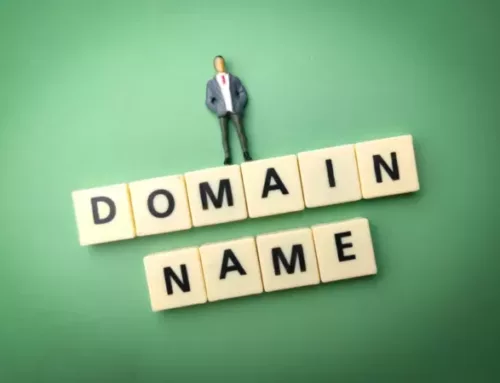The Ultimate Timeline: How Long Do IP Rights Last?
According to the United States Patent and Trademark Office (USPTO), copyright, which protects one type of intellectual property (IP), generally remains valid for 70 years after the author dies. Understanding how long copyright and other IP rights last can help individuals and entities prepare for when these legal protections end. Find out the answer to “How long do IP rights last?” and discover how an experienced Washington, D.C. intellectual property attorney from War IP Law can help individuals overcome their IP challenges by calling (202) 800-3754.
What Are IP Rights?
The World Trade Organization (WTO) defines IP rights as the rights provided to individuals or entities concerning their creations. These rights grant creators with exclusive usage rights for their creations for a specific period. Two main categories of IP rights exist, including:
- Copyright and related rights: Authors of artistic and literary works, including books, other written materials, paintings, music, sculptures, films and computer programs, receive protections from copyright. Performers, such as singers, actors, and musicians, broadcasting organizations, and record producers also receive copyright or neighboring rights protections. The primary purpose of these IP rights is to foster and reward creativity.
- Industrial property: This category includes trademarks that protect distinctive signs to foster and maintain fair competition, while also protecting customers by allowing them to make informed purchases of products and services. For instance, a trademark distinguishes the product or service of one business from those of another entity offering products or services in the same category. Other industrial property types receive protections to foster innovation, technological developments and design. These include patent-protected inventions, trade secrets, and industrial designs.
Do Intellectual Property Rights Expire?
Some intellectual property rights expire, whereas others can last indefinitely if the IP owner follows certain requirements. Find out about the expiration dates for various IP rights below.
Trademarks
Trademarks include company logos, names, symbols, and slogans. In the United States, registered trademarks typically last indefinitely as long as they are continuously used, maintained and defended once infringed. To maintain these IP rights, it is necessary for trademark owners to file maintenance documents with the USPTO and pay the required fees between the fifth and sixth year of the mark’s registration, between the 9th and 10th year of the mark’s registration and then every 10 years after that.
IP owners can still gain limited common law protections if they choose not to register their trademarks. These marks acquire legal protections in the geographical areas where the owners use them, rather than receiving nationwide protections.
Copyright
Copyrighted materials include creative works, such as artwork, songs, and literature. In the United States, the duration of copyright and the requirements for maintaining protections depend partly on the period in which a work was created or published.
Works Created After January 1, 1978
Copyright terms for works created after January 1, 1978, last throughout the acknowledged author’s lifetime plus an additional 70 years after they pass away. Pseudonymous, anonymous, or works created for hire purposes last for 120 years after creation or 95 years after publication, with the shorter of these two dates being the length of protection.
Works Published between January 1, 1978, and March 1, 1989
Creative works published between 1978 and March 1, 1989, without an accompanying copyright notice, became public works unless the author corrected the error within five years of the publication date.
Works published after March 1, 1989, do not require a written copyright notice.
Works Created Before January 1, 1978
The duration rules for literary or artistic works made before January 1, 1978, differ and depend on multiple factors. Generally, these works receive a maximum of two 14-year protection terms. Individuals can find out more information on these terms by consulting Chapter 3 of the Copyright Act.
Design and Utility Patents
Design patents protect ornamental designs. They usually stay valid for 14 or 15 years after their grant dates, depending on their filing date, and do not require maintenance fees.
Utility patents protect machines and processes and remain valid for 20 years after the filing date. These patent owners pay regular maintenance fees to the USPTO to maintain these protections, with payments due at three and a half, seven and a half, and 11 and a half years from the grant date.
Explore how War IP Law, PLLC can help individuals with their IP issues and discover the answer to “How long do IP rights last?” in your particular case by contacting them to arrange a consultation.
Trade Secrets
Trade secrets refer to any information, techniques, devices, or processes a company uses and keeps private to gain a competitive advantage. Provided the information associated with the trade secret remains private, the IP owner introduces reasonable steps to protect these details, and the trade secret maintains its commercial value, the IP owner can maintain this IP right indefinitely.
Depending on the information that forms the trade secret, the definition of these reasonable steps to protect the secret can vary. One effective way for businesses to demonstrate that they have taken these steps involves creating detailed trade secret policies.
Why Do Intellectual Property Rights Expire?
Copyright expires because the sharing of ideas benefits society as a whole. A key part of owning property includes excluding everyone else from using it. To strike a balance between encouraging cultural expression and exchange of ideas and the rights of creators to profit from their work, copyright protections eventually expire.
Patents ultimately also expire, allowing others to freely use the invention. This policy exists to reward individual research and development efforts while also fostering broader societal developments. Patents essentially provide companies with a monopoly to make research and development investments worthwhile. However, if these monopolies stay in place for too long, it can lead to certain companies dominating the market and setting high prices by preventing competitors from producing similar goods or designs. Patent expiration dates help to limit this kind of exclusive usage, allowing other participants in the market to use established inventions to find ways of improving the existing technologies, as well as opening the market to competition that may drive down prices.
Contact an Intellectual Property Lawyer Today
The International Trade Administration (ITA) states that while some types of IP, such as copyrights and patents, have expiration dates, others, like trademarks and trade secrets, can potentially last indefinitely if they meet certain conditions. Consider contacting a seasoned Washington, D.C. intellectual property lawyer to learn more about what individuals and entities can do with their IP assets once their rights expire. Discover the answer to “How long do IP rights last?” and see how War IP Law, PLLC can help individuals with their IP concerns by contacting our office at (202) 800-3754.







